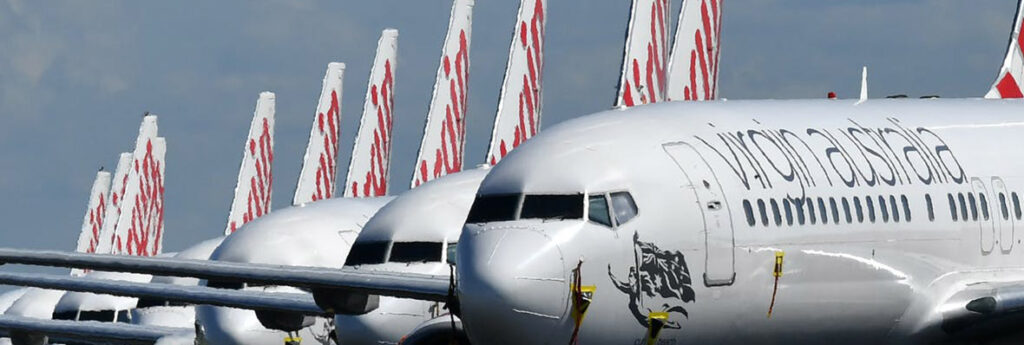Virgin Australia’s creditors agreed Friday to sell the airline to Boston-based Bain Capital in a deal that will see the carrier cut 3,000 jobs and end many of its international flights. Co-founded by British businessman Richard Branson, the airline in April became the world’s largest to seek bankruptcy protection after the coronavirus pandemic grounded much of the aviation industry. It plans to reemerge with cheap fares as a value-based carrier.
Another airline founded by Branson, Virgin Atlantic, last month filed for protection in US bankruptcy court as part of a process in the United Kingdom to carry out a restructuring plan.
Virgin Australia said the deal with Bain, worth AU $3.5 billion ($3.4 billion), would see unsecured creditors get paid between 9 and 13 cents on the dollar for their claims. Virgin’s creditors are owed a total of about AU $7 ($6.68) billion.
Due to the pandemic, the creditor meeting was held online. The administrators in June signed a binding agreement with Bain Capital, the company co-founded by former Republican presidential candidate Sen. Mitt Romney.
Paul Scurrah, the chief executive of Virgin Australia Group, said the sale moves the airline closer to leaving bankruptcy protection and allows it to focus on the future, in which it will continue competing with its larger rival, Qantas Airways.
“It’s vital for Australia to have two major airlines for consumer choice, value airfares, and to help support the recovery of Australia’s robust tourism sector after this crisis is over,” Scurrah said in a statement.
Virgin’s administrator Deloitte said creditors had voted overwhelmingly in favour of the deal in what have been challenging circumstances.
“This outcome provides certainty for employees and customers, a return to creditors, and opportunities for suppliers and financiers to continue to trade,” Joint Voluntary Administrator Vaughan Strawbridge said in a statement.
Under a plan announced previously by Scurrah, the airline will cut back it’s workforce to 6,000 and end long-haul routes from Australia to Los Angeles and Tokyo as it resets the business for lower global demand.
The airline plans to shed its Boeing 777 and Airbus A330 planes and use Boeing 737s, along with some smaller aircraft for regional and charter flights. The airline’s budget subsidiary Tigerair Australia will be discontinued.
Virgin Australia’s major shareholders are Singapore Airlines and Etihad Airways, along with Chinese investment conglomerates Nanshan Group and HNA Group. Branson holds a 10% stake.
The airline sought bankruptcy protection after the Australian government refused its request for a AU$1.4 billion loan.
Australia’s Treasurer Josh Frydenberg told reporters at the time his government wasn’t going to bail out “five large foreign shareholders with deep pockets who together own 90% of this airline.”
Qantas argued that it had three times more revenue than Virgin and was therefore entitled to a AU$4.2 ($4.1) billion loan if the smaller airline was not to gain an unfair advantage.

